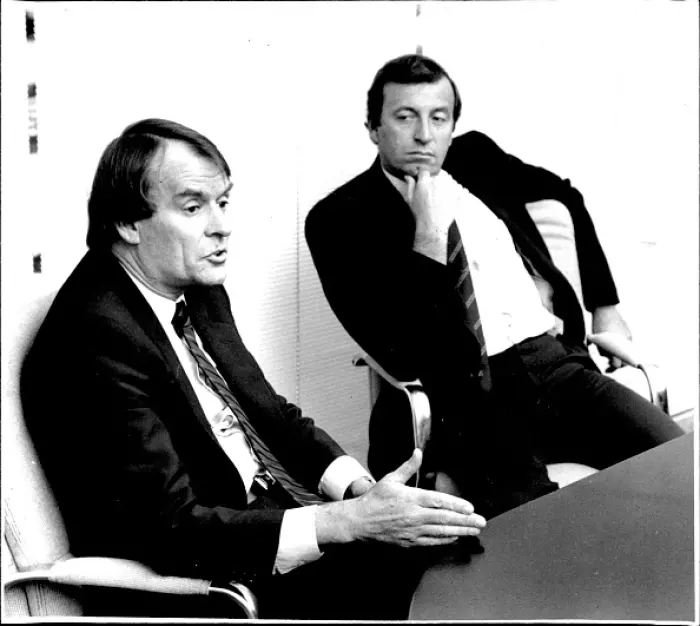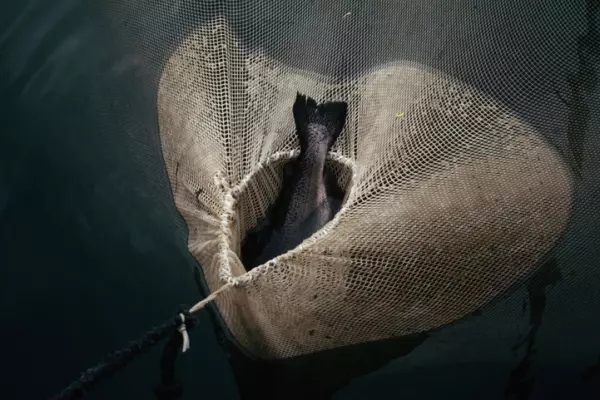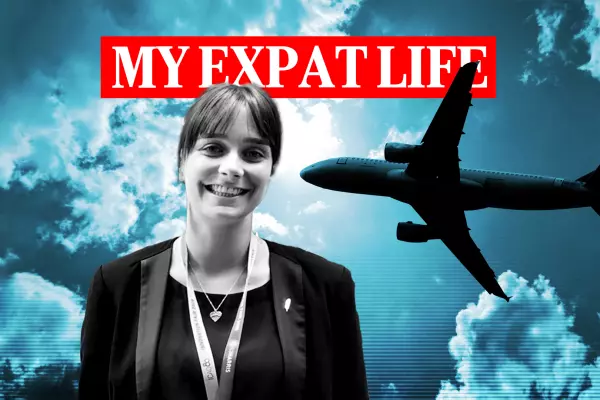The NZX was a wild-west market in the 1980s and 1990s, mainly because of the lack of regulation, particularly the absence of a takeovers code.
Listed companies were plundered as controlling shareholders sold assets into them at inflated prices and bought assets from them at well below fair value.
London Pacific is a perfect example of the plundering and deception that characterised the NZX three and four decades ago.
London Pacific
London Pacific, which was incorporated as Teltherm Industries in 1970, listed on the NZX in 1976. The company was fairly typical of the era as it was involved in a wide range of diverse activities including the importing, manufacture and distribution of electronic and engineering equipment.
Allan Hawkins’ Equiticorp purchased a majority stake in Teltherm in 1983 and the following year, the company changed its name to JEDI Corporation. Hawkins was appointed a JEDI director and by 1985, Chase Corporation had acquired a 20% stake, with Colin Reynolds and Peter Francis as its board representatives.
A mid 1985 investment report described JEDI as “a market highflyer” that “should soon produce the results to justify its high profile”.
In a typical mid 1980s transaction, JEDI sold its two major assets, AM Bisley and Yates Corporation, to Equiticorp in early 1986, leaving JEDI as a listed shell with $33 million in cash, no debt and a small shareholding in NZX-listed Perry Dines.
First partial takeover
In May 1986, Equiticorp sold its 85% holding to Trinity Insurance, a UK incorporated company controlled by Cheah Theam See of Malaysia.
JEDI changed its name to London Pacific in Sept 1986, but the shareholding reverted back to Equiticorp after Trinity Insurance and Cheah defaulted on their payments.
Hawkins, who was Equiticorp’s CEO, later said Cheah was his company’s biggest problem as the Malaysian businessman did a runner from New Zealand, leaving Equiticorp with a $100m write-off in relation to its JEDI/London Pacific investment.
Second partial takeover
On Dec 22, 1988, London Pacific announced that Equiticorp had sold its reduced London Pacific stake of 69.4% to Stephen Koong from Singapore and Andrew Yew from Malaysia.
The stock exchange release stated: “It is the intention of the purchasers to direct the investment of the company into the timber industry and the new board have arranged for the company to make a substantial investment in timber extracted from a Malaysian timber concession near the Indonesian border in Sarawak.”
Two board meetings were held in Auckland on Dec 21, 1988, the day before the Equiticorp sale was announced to the NZX.
The first meeting accepted the resignation of Dennis Paget, Peter Tibbits and Brian Mackenzie from the London Pacific board and the registration of 105.77m London Pacific shares purchased by Shelco Investments from Equiticorp.
The second approved the appointment of Koong, Yew and Peter Chieng as directors, with the latter as chairman. The minutes of the second meeting stated: “The chairman reported that a proposal had been received for the company to invest in the timber business in Malaysia by way of purchasing all of the share capital of Begin Link Limited, a Hong Kong company which had an investment in the marketing rights of timber extracted from the timber concession known as T3155 in the state of Sarawak, Malaysia.”
The new directors agreed to purchase Begin Link for NZ$4.2m.
Payment for shares purchased from Equiticorp
Shelco Investments, the purchaser of London Pacific shares, was a shell company incorporated by Auckland law firm Martelli McKegg Wells & Cormack with capital of only $100 that was never increased.
Shelco had two registered owners, Koong (99%) and Yew (1%), although the Securities Commission later discovered that Koong and Yew held these shares on behalf of a Singapore businessman with Sarawak timber concessions.
On Dec 21, 1988, Shelco paid $25.5m for its London Pacific shares as follows:
- It paid Equiticorp $23.9m for the purchase of 105.77m London Pacific shares at an average price of 22.6 cents each, representing 69.4% of the listed shell company.
- Shelco purchased an additional 8m London Pacific shares from Singapore based Baker Marine, representing a further 5.3% of the company, for $1.6m.
Shelco paid for these shares by ‘stealing’ $25.5m from London Pacific through a circular route.
In simple terms, London Pacific deposited most of its cash funds with First South China Bank Ltd (FSC Bank), which was incorporated in the Cook Islands but operated out of Hong Kong, and FSC Bank then ‘loaned’ most of this money to Shelco to buy the London Pacific shares.
Thus, London Pacific, which had increased its cash resources from $33m to $33.4m through the sale of the Perry Dines shareholding, now had only $7.9m left after $25.5m had been plundered to finance Shelco’s purchase of 74.7% of London Pacific.
This was clear highway robbery as far as London Pacific’s 7000 shareholders were concerned.
Begin Link
According to NZX announcements, London Pacific purchased Begin Link, the Sarawak forestry operation, for $4.2m on the same day that Shelco acquired a controlling interest in the NZX listed company.
London Pacific’s annual report for the March 1989 year revealed for the first time that the NZX listed company had invested an additional $27m in two companies associated with the Sarawak timber project through Begin Link.
The NZX listed company’s shareholders passionately debated the merits of these timber rights, particularly at the 1989 annual meeting, yet the Securities Commission later concluded that the company had never purchased these timber interests; in fact, its NZX announcements and balance sheet references to timber investments were mostly fictious.
The timber investments were created to conceal the use of London Pacific’s money by Shelco to purchase its controlling stake in London Pacific.
The commission wrote: “The complex documentation which related to the Malaysian forestry concession was entered into to give the appearance of the creation of rights where little if any existed or were intended to exist. The principal if only purpose of this was to hide the ransacking of the company’s funds on and immediately following Dec 21, 1988.”
The commission noted that $6.1m was paid out to a party or parties unknown and these funds could have gone to parties associated with Malaysian forestry concessions. This $6.1m was in addition to the $25.5m of London Pacific funds used to purchase its own shares.
Wrap up
London Pacific had 7000 shareholders and a net asset backing of 22 cents a share, nearly all in cash, when Shelco gained control of the company in Dec 1988.
The company was placed in receivership on Oct 11, 1990, and was delisted from the NZX in July 1991, when its shares were worthless.
Shelco Investments was struck off the register of companies on July 16, 1992, for failing to file annual returns.
There were so many irregularities with the Shelco/London Pacific share transaction – as well as the supposed investments in Sarawak timber concessions – that one could write a book about the debacle that saw $33m of shareholders’ money disappear into thin air.
However, the most important point was that these developments wouldn’t have happened if there had been a takeovers code that also required Shelco to make an offer to all shareholders at 22.6 cents per share.
Nevertheless, a large section of the New Zealand business community, particularly the Business Roundtable and the NZX, continued to vigorously oppose a code even though there were several London Pacific lookalikes in the 1980s and 1990s.
A code was finally introduced on July 1, 2001, 12 and a half years after Shelco acquired a majority stake in London Pacific.
But by mid-2001 most New Zealanders had given up on the domestic sharemarket and decided that residential property was a much safer bet.
Disclosure of interests: Brian Gaynor is a non-executive director of Content Ltd, the publisher of BusinessDesk, and of Milford Asset Management.














